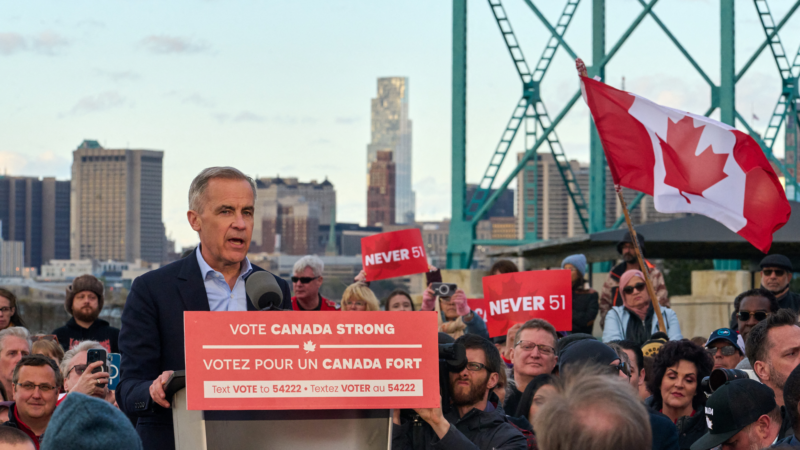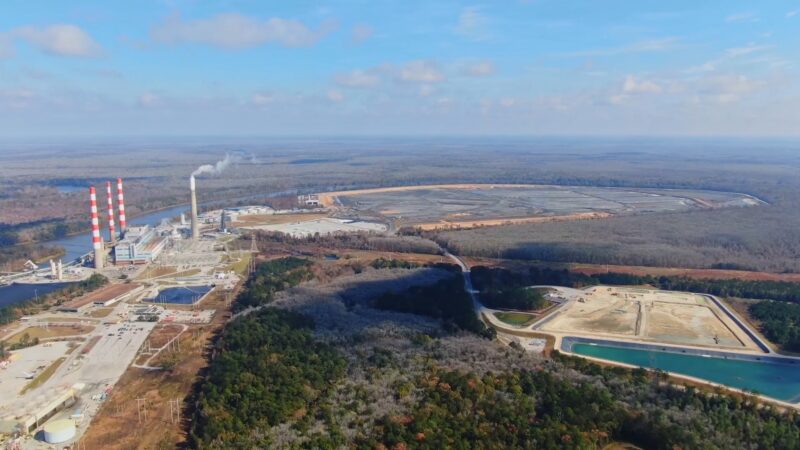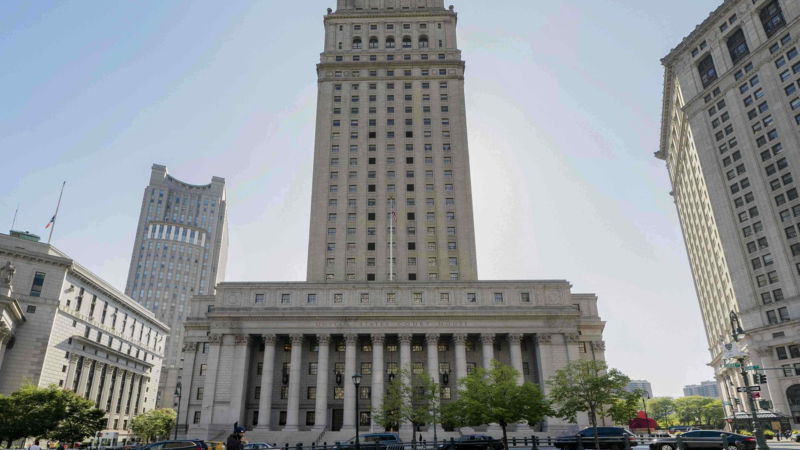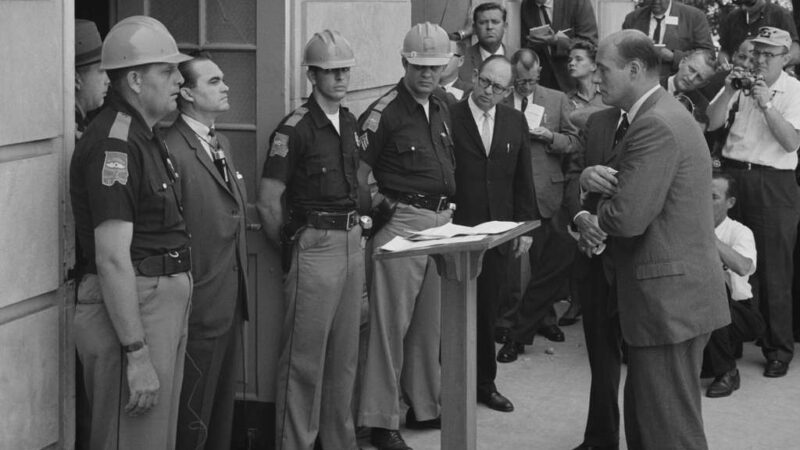Trump has said Canada should be the 51st state. Today, he meets its prime minister
President Trump is set to meet Canadian Prime Minister Mark Carney at the White House Tuesday after Trump’s steep tariffs and harsh comments about making Canada the “51st state” created tension between the two neighbors and allies.
Carney, the leader of the center-left Liberal Party, won Canada’s election last week in a campaign dominated by concerns about Trump’s rhetoric and the impact of tariffs on the country’s trade-dependent economy.
“As I’ve been warning for months, America wants our land, our resources, our water, our country,” Carney told supporters on election night. “These are not idle threats. President Trump is trying to break us so America can own us. That will never, ever happen.”
Trump has repeatedly floated the idea of annexing Canada and using “economic force” to do so. In an interview with NBC’s Kristen Welker that aired Sunday, Trump said it was “highly unlikely” that the U.S. would use military force, but “it could happen.”
“If Canada was a state, it wouldn’t cost us,” Trump told NBC. “It would be great. It would be such a great — it would be a cherished state.”
Trump often cites U.S. trade deficits with Canada as justification for making it the 51st state. His administration has imposed a 25% tariff on many Canadian goods.
Trump — who has noted more than once that Carney’s party failed to win a majority in Parliament — downplayed the meeting on Monday.
“He’s coming to see me. I’m not sure what he wants to see me about, but I guess he wants to make a deal. Everybody does. They all want to make a deal because we have something that they all want,” Trump said.
It’s the chance for a reset in the relationship
Carney is a former central banker who took over after Prime Minister Justin Trudeau resigned in January. Their party was down in the polls until Trump started talking about annexation, raising the ire of Canadians.
“President Trump single-handedly helped the Liberal Party recover from a very large popular-opinion deficit in Canada to win the election, ironically,” said Jon Parmenter, a professor of history at Cornell University.
“It’s quite shocking to see the extent to which that attitude [toward the U.S.] has changed in response to the initiatives that the Trump administration has taken since Inauguration Day,” Parmenter said.
Trade is likely to be a topic of discussion between the two leaders, but Carney signaled in a news conference last week that Tuesday’s meeting would be only the start of negotiations.
Carney’s willingness to stand up to Trump’s rhetoric was a big part of his appeal to voters, said Asa McKercher, a public policy professor at St. Francis Xavier University in Nova Scotia — describing the “elbows up” slogan adopted by Carney’s campaign. It’s a hockey term used to describe a defensive stance.
Tuesday’s meeting could be an opportunity to “reset the relationship” between the U.S. and Canada, “because it’s pretty bad,” McKercher said. “Canadians are really upset at the president of the United States.”
How Alabama Power has left the ‘American Amazon’ at risk
As its polluting coal ash ponds remain in groundwater, Alabama Power has doubled down on fossil fuel energy investments.
Federal appeals court judge is accused of bullying her clerks
The Legal Accountability Project complaint, which has not been previously reported, states that it is based on conversations with multiple former law clerks.
How George Wallace and Bull Connor set the stage for Alabama’s sky-high electric rates
After his notorious stand in the schoolhouse door, Wallace needed a new target. He found it in Alabama Power.
FIFA president defends World Cup ticket prices, saying demand is hitting records
The FIFA President addressed outrage over ticket prices for the World Cup by pointing to record demand and reiterating that most of the proceeds will help support soccer around the world.
From chess to a medical mystery: Great global reads from 2025 you may have missed
We published hundreds of stories on global health and development each year. Some are ... alas ... a bit underappreciated by readers. We've asked our staff for their favorite overlooked posts of 2025.
The U.S. offers Ukraine a 15-year security guarantee for now, Zelenskyy says
Ukrainian President Volodymyr Zelenskyy said Monday the United States is offering his country security guarantees for a period of 15 years as part of a proposed peace plan.








